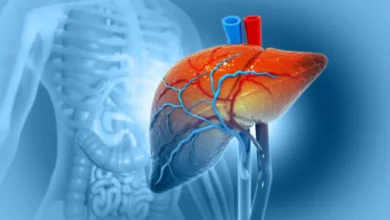-
NATIONAL

The campaign “Our walk towards polling booth” receives positive feedback
Mangaluru: The SVEEP committee of Dakshina Kannada initiated the “Namma Nade Matha Katte Kade” (our…
Read More » -

-

-

-

-
UP STATE

Cong names Allahabad in-charges
Prayagraj: Former MLA Bhagwati Chaudhary, former MLA Anugrah Narayan Singh, and UPCC general secretary Mukund…
Read More » -

-

-

-
BIHAR

Bihar Local School Polls: Despite criticism of dynasty politics, it’s…
As in the past, both coalitions in Bihar have found dynasty politics to be equally…
Read More » -

-

-

-
ENTERTAINMENT

Exclusive: Sendhil Ramamurthy of Do Aur Do Pyaar calls Alia…
Recently, American actor Sendhil Ramamurthy portrayed Vikram in the Bollywood romantic comedy Do Aur Do…
Read More » -
ENTERTAINMENT

“I Can’t Answer That”: Celine Dion Shares Her Thoughts About…
Celebrity singer Celine Dion and Vogue France have discussed possible gigs for the singer. She…
Read More » -
ENTERTAINMENT

Ayushmann Khurrana praises Diljit Dosanjh for this reason, acknowledging that…
Bollywood and fashion have always coexisted. The performers consistently manage to create new trends and…
Read More »
-
INTERNATIONAL

There’s a severe labor shortage in Germany—guess which Asian behemoth…
Germany is experiencing a significant demographic crisis due to an aging population and a severe…
Read More » -

-

-

-

-
HEALTH

How liver disorders sufferers’ lives may be saved by liver…
The liver is essential to the body’s general operation. It preserves general health by cleansing…
Read More » -

-

-

-
LIFESTYLE

The famous Gaylord restaurant in Churchgate, Mumbai, reopens with a…
While time machines remain a pipe dream, Mumbai offers something that might fulfill all of…
Read More » -

-

-

-
SPORTS

Despite not completing the requirements, a shotgun shooter is allowed…
It seems that the national shooting federation has lately loosened the standards for one marksman,…
Read More » -
SPORTS

IPL 2024 | Sandeep on bowling death overs: “You have…
Sandeep Sharma, a pacer for the Rajasthan Royals, said at the post-match press conference that…
Read More » -
SPORTS

IPL 2024: Lara on Jaiswal: “It was well put together,…
Yashasvi Jaiswal hit the game-winning century in the Rajasthan Royals vs. Mumbai Indians IPL 2024…
Read More » -
SPORTS

The owner of an Indian club is charged with match-fixing…
According to a Colombo magistrate’s court official, Indian citizen Yoni Patel, who runs a cricket…
Read More » -
SPORTS

Did Hardik Pandya reject Lasith Malinga’s embrace after the MI…
Hardik Pandya, the captain of the Mumbai Indians, achieved a noteworthy milestone in his Indian…
Read More »























